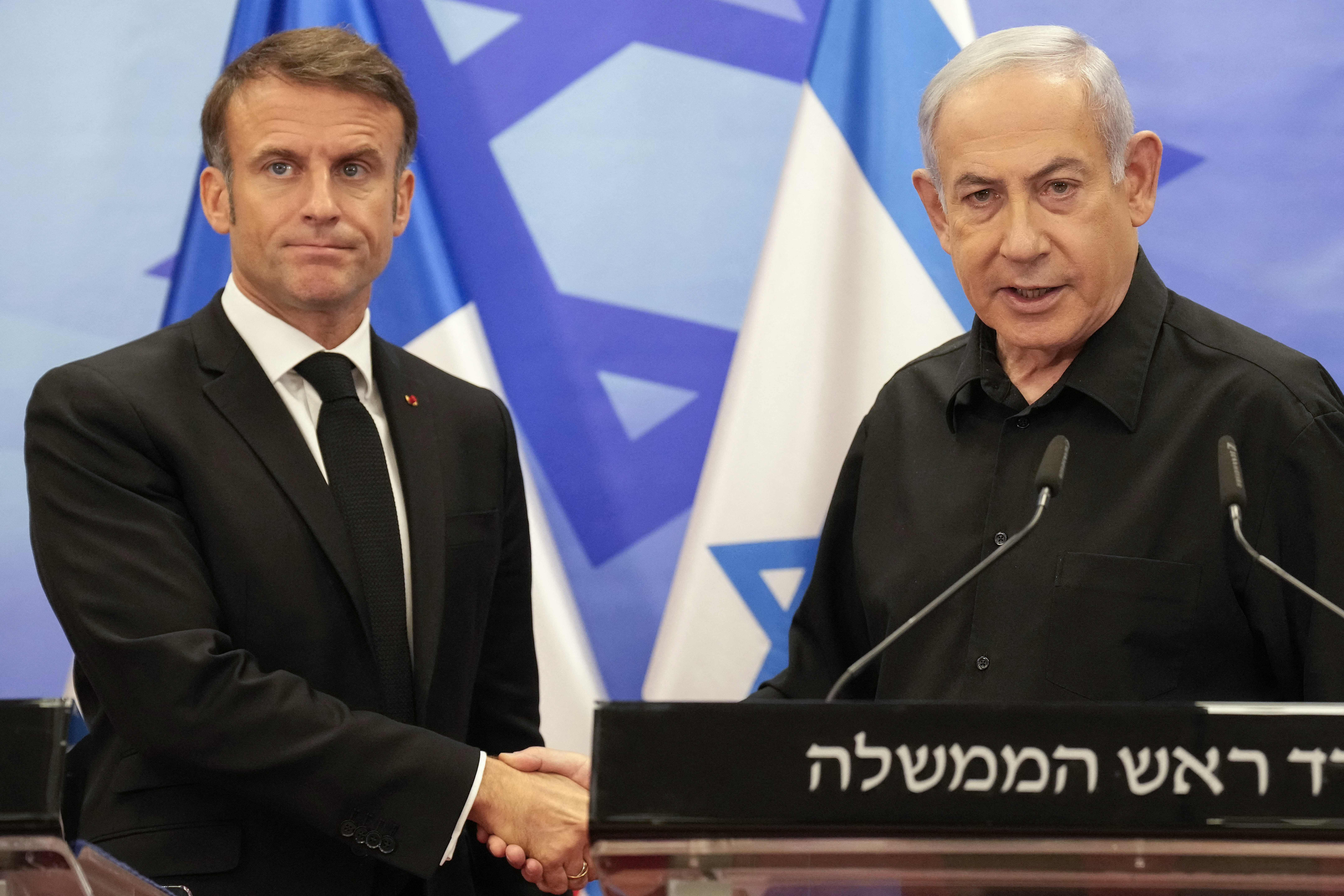scoop
Netanyahu rejects France’s part in potential Lebanon cease-fire unless it recants ICC arrest threat
Biden called Macron to reach compromise; Lebanon has required France to play a central role in monitoring the possible cease-fire with Israel

CHRISTOPHE ENA/POOL/AFP via Getty Images
Israeli Prime Minister Benjamin Netanyahu (R) shakes hands with French President Emmanuel Macron (L) after their joint press conference in Jerusalem on October 24, 2023.
Israeli Prime Minister Benjamin Netanyahu is maintaining a veto on French involvement in a potential cease-fire in Lebanon unless Paris publicly makes clear that it will not arrest Netanyahu if he travels to the country pursuant to a warrant...











































